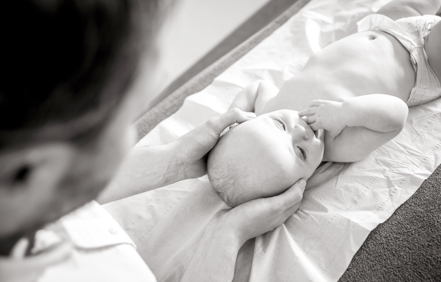Osteopathy
 1- What is Osteopathy?
1- What is Osteopathy?
Osteopathy is a form of drug-free non-invasive manual medicine that focuses on total body health by treating and strengthening the musculoskeletal framework, which includes the joints, muscles and spine.
This therapy is a holistic (whole body) approach to health care. Osteopaths do not only concentrate on treating the problem area, but use manual techniques to improve the mobility of the body.
The key principles are based on all parts of the body functioning together in an integrated manner. If one part of the body is restricted, then the rest of the body must adapt and compensate for this, eventually leading to inflammation, pain and stiffness.
 Osteopaths use a broad range of gentle hands-on techniques including soft tissue stretching, deep tactile pressure, and mobilisation or manipulation of joints.
Osteopaths use a broad range of gentle hands-on techniques including soft tissue stretching, deep tactile pressure, and mobilisation or manipulation of joints.
Osteopathy treatment can be beneficial for patients of all age suffering from:
• Musculoskeletal Dysfunction
• Musculoskeletal problems that develop during and after pregnancy.
• TMJ dysfunction
• For children and babies suffering from colic, re-flux, constipation, sleeping difficulties, plagiocephaly and other conditions during the childhood development.
2. What is a registered Osteopath?
A registered Osteopath has had a minimum of four years training or equivalence in an accredited Osteopathy Course with a minimum of 1,000 hours of supervised Clinical tuition prior to graduation. All osteopaths who are members of the Osteopath Council of Ireland have completed an honours degree in Osteopathy (minimum 4 years full time, or 5-6 years part-time) and are committed to continuous learning and professional development.
For more information call us on 025 52050 or email us at physiotherapy@livinghealth.ie
